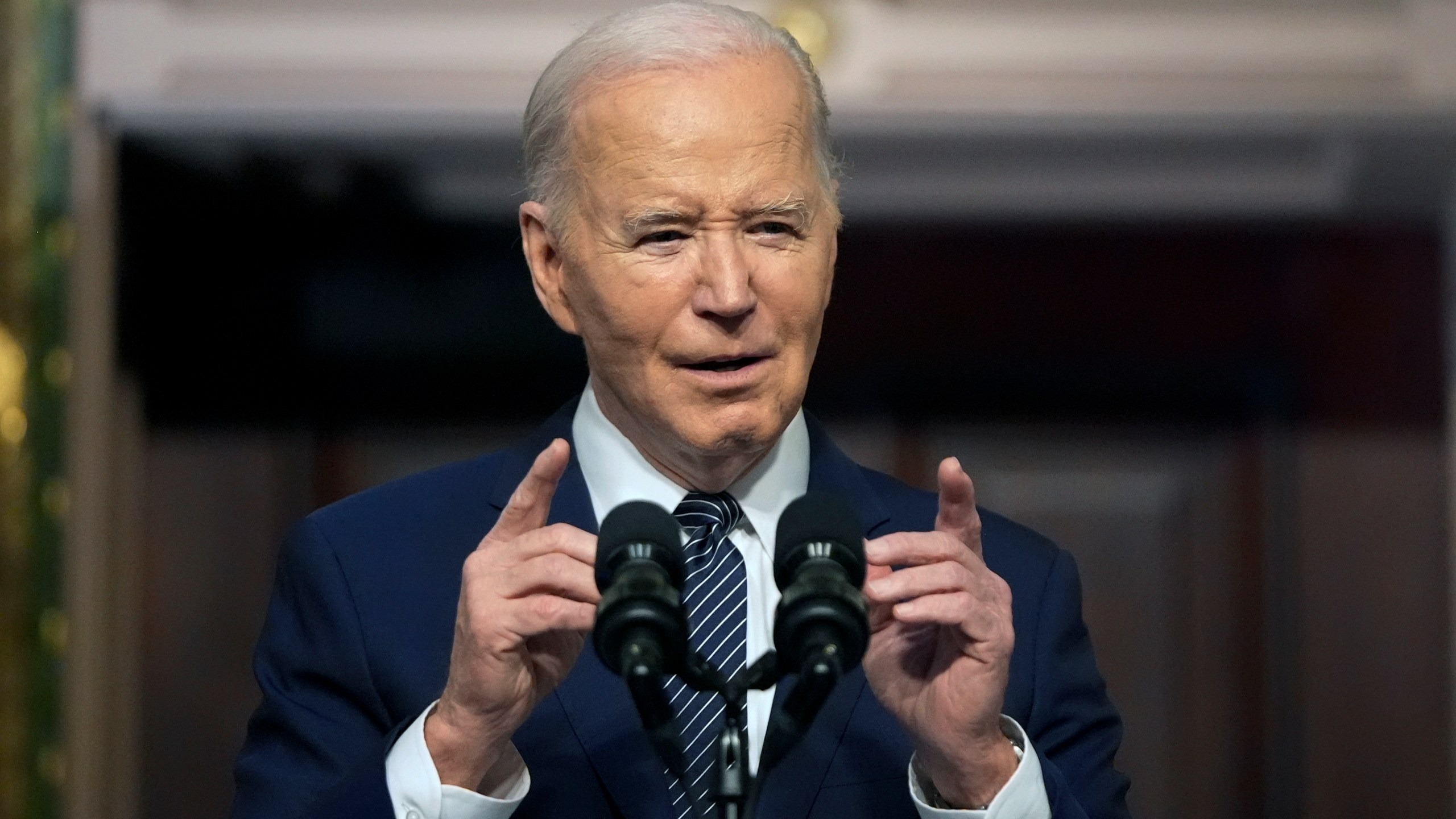California voters consistently express their concerns about the housing crisis and homelessness, considering them to be the most pressing issues. Many Californians perceive the crisis mainly through the sight of tents on street corners, typically associating it with local politicians.
However, a huge portion of the funding aimed at addressing homelessness or housing insecurity actually comes from the federal government. Approximately 28% of the nation’s homeless population, roughly 180,000 individuals, resides in California.
Nationally, homelessness increased once again in 2023, with housing affordability remaining a primary concern for voters during this election season. The three leading presidential candidates—President Biden, former President Trump, and Robert F. Kennedy Jr.—have all offered insights into their perspectives on the issue.

President Joe Biden (Credits: ABC News)
President Biden has recently elevated housing affordability as a central theme in his reelection campaign. He has proposed various measures, including investments in housing initiatives, as part of his “Build Back Better” agenda.
Despite facing challenges in passing comprehensive legislation, Biden’s administration has allocated funds for rental assistance and housing vouchers during the COVID-19 pandemic. Additionally, Biden advocates for tax credits for first-time homebuyers and incentives for housing development.
Since announcing his reelection bid, former President Trump has not extensively addressed housing or homelessness. While his campaign website highlights ending veteran homelessness as a priority, Trump’s specific plans remain unclear.
He has previously expressed intentions to address urban camping and has emphasized law enforcement measures, although the effectiveness of such approaches is debated.
Although Robert F. Kennedy Jr. lacks a political track record, he has outlined his proposals for addressing housing affordability. His plans include leveraging changes to the tax code, promoting local zoning reforms, and exploring strategies to reduce home mortgage interest rates.

Donald Trump (Credits: The New York Times)
Kennedy emphasizes the importance of housing in building wealth within underserved communities and advocates for policies that encourage housing availability and affordability.
All three candidates recognize the need for local zoning reforms to increase housing supply and lower prices, although the specifics of their approaches vary.
Biden’s focus includes federal investments and tax incentives, while Trump emphasizes law enforcement measures and regulatory changes. Kennedy proposes tax reforms and initiatives to encourage local government action on zoning and housing availability.























